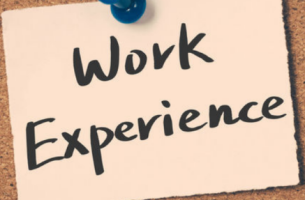
Kerry O'Neill
Mar 25, 2021
Ten Questions One Hot Seat – Meryl Bengtsson, HR Director
In today's Ten Questions One Hot Seat, we’ll be grilling Meryl Bengtsson, HR Director Boloré Logistics & Transport. Our Head of Marketing Kerry O'Neill talks to Meryl about her career and advice for others trying to advance their careers in HR.
Kerry: Hi there for today's 10 questions one hot seat we are pleased to welcome Meryl Bengtsson, HR Director for Boloré Logistics and Transport. Welcome Meryl thanks for joining me today.
Meryl: Thank you for inviting me
Kerry: Well we're looking forward to hearing about your career story and your advice for fellow HR professionals, so let's jump straight in with question number one if that's okay. What did you want to be when you were at school?
Meryl: So surprisingly not in HR I actually wanted to either be a hairdresser or an actress
Kerry: Okay super stuff and when did you first start working in HR and what attracted you to it?
Meryl: I think my story is like a lot of other people who are in HR which is, sort of, you fall into it rather than it's a planned route into HR. I got a job working for the HR Director for a Coca-Cola bottling company in South Africa as his PA and I guess he saw something in me and started mentoring me and encouraged me to study to take some formal qualifications.
That's really how I got into it and I used to sit with him taking minutes of union negotiations and used to get quite involved and excited about it and I was helping the training manager and then I started getting involved in very junior recruitment and when you start seeing the difference that you can make in somebody else's life that's what attracted me to the field because you can absolutely make a difference in somebody's life.
Kerry: Oh absolutely, so which role or company have you worked for where you feel you really elevated your career to the next level and why was that?
Meryl: Yeah so, I think I’ve been very lucky in my career that pretty much every job I’ve taken it's sort of been the next step for me and I’ve seen a natural progression to where I am now, so I’ve been very lucky in my career.
I think the role where I really started feeling like I was really in control of my own destiny, in a way, was when I worked for APB which was part of the inventors group. It was an engineering arm, and I was the hr manager on site. It was the regional office for the European centre so they hadn't had an HR Manager for a while. So, when I arrived there it was really like a blank canvas for me. There was a lot to do, a lot to update, a lot of raising the profile of the HR function with managers, with employees getting involved in quite a lot of different projects that were on a group level as well as just for APB.
So I really felt I sort of had reached that point in my career where I was really moving up and starting to get involved in a lot of things and coming up with initiatives and so on, whereas maybe previously I was more junior so I was following the direction about the people in a way. So, it was a great company to work for and I’m still in touch with quite a lot of people that I worked with there, there was an amazing group of people there.
Kerry: Fantastic, sounds like a great opportunity. So, what's been the biggest challenge you faced so far in your working career?
Meryl: Well, I think the very nature of the HR function you meet a lot of different challenges all the time. But I think one of my biggest challenges really, on a personal level but also from a career, is I was asked to go to Botswana as part of a project team to take the central medical stores, which was part of the government, and to semi-privatize them and make them a parastatal.
I was the HR lead and I was part of a group of five people. When we arrived in Botswana we were met with a lot of suspicion. Apparently, there had been another project team that had been there maybe a year earlier that had made lots of large promises to all the staff which had never materialized. So, you know they were just thinking “yeah right you've just come and you're gonna make all these fabulous promises then you're going to leave”. And then the government decided to change their plans and not make it a parastatal. So, we then had to work within the government confines which from an HR perspective was quite frustrating because they had a centralized HR function, so I wasn't given a huge amount of freedom to do what I needed to do. So, I resorted to really the only thing I could do was do a lot of training because I wasn't free to change policies or contracts or anything like that. Fortunately, we were being sponsored by USAID, so I was able to get money from USAID as opposed to from the Botswana government to do a lot of training.
So that was quite challenging and then also being thousands of miles away from home and family and so on, so on a personal level it was quite challenging too but you have to find the best solution in the situation that you are in in order to be involved and be active and feel like you're actually contributing.
Kerry: Well, nothing is perfect is it when none of us live in a perfect world unfortunately. So, talking of challenges, the last year has been a challenge for everybody really working in business and so how have your team adapted or had to adapt to cope with the challenges that the pandemic has brought?
Meryl: Well, I would say that when it first happened, we were dealing with the unknown and the projections were really quite severe. Frightening in terms of what it could mean for the country with, you know, projected deaths and so on, so there was a lot that we had to do. But I would say the biggest competency that was called upon was the ability to be flexible, to think on your feet, to be a stable person, because there's a lot of confusion and a lot of people with uncertainty and if you're also projecting that then you're not going to get the best out of people. So, I think that my team rose to the challenge and we had to learn sort of on the trot, so to speak.
Furlough, I mean who knew even what that word meant before March of last year or April of last year? So, it was challenging but certainly we've come out the other side for sure. And I think the biggest thing is communication. Making sure that you communicate to your staff and to the employees so that they know that the company's got a plan and that they're going to get through this at the end of it.
Kerry: Yeah, this is important isn't it, to bring as much certainty as you can do in an uncertain situation. Yeah definitely we've seen that here.
There's no doubt that technological advancements have had a significant impact on businesses in general in recent years and how have these changed the way you work in the HR function?
Meryl: Well I’ll be the first to admit I’m not by any means technologically advanced it doesn't come naturally to me. But I recognize that it is something that I have to embrace in order to keep current. So I would say that as a company it’s baby steps really in comparison to maybe what you read about and what other companies are doing. But the kind of things where we are doing things is more in terms of employee self-service, we're now getting involved from an internal comms point of view doing talks which is like zoom calls and zoom interviews so we're using technology to communicate with our staff.
Data analytics, which is very a hot topic right now, this is a lot of decisions being driven by data particularly from an HR perspective in terms of your head count and your cost and absenteeism ratios and you know all of that kind of stuff. Which I think is sort of part of the expectation now from an HR. But I don't embrace technology and for me there's just a conflict in AI and I know a lot of companies are embracing artificial intelligence when it comes to the recruitment process and the selection of CVs and I don't embrace it I don't agree with it. I think it goes against the very heart and nature of what HR is about and I've yet to be convinced of its value without losing human touch. So maybe somebody would convince me but right now I’m not convinced by it.
Kerry: There have been issues, I think we're in the early stages. Was it the Amazon AI that had some issues with when it came to sort of gender bias? They found it was it was biased towards men, ironically because they were the most successful candidates which was interesting, so they had to pull it in the end which was really interesting actually. I guess it's baby steps isn't it. Trying to not lose the human side especially.
So what three skills do you think make a really great HR Director?
Meryl: I think empathy must be one of your overriding qualities because I think you have to understand what goes on in people's lives and people's heads and challenges that they face. When you make decisions it doesn't mean you have to agree with it or be sympathetic, which is slightly different, but I think you have to understand it so that you treat people with respect and even if you have to make difficult decisions for a business you have to empathize with the situation. So I think it's a really important quality to have.
I think building relationships is another one that you really have to be able to build relationships, not just with your peers, or not just with your colleagues or your senior management team, but also with everybody in the business so that they feel that there is a human element and that they can approach you should they need to.
Also, I really believe very, very firmly in having people's back. I mean, I wrote an article about it which is on my LinkedIn page on having people's back. Because I think particularly in the HR function you sometimes have to make really difficult decisions and you're not necessarily the most popular person. I think sometimes managers find it easy, as a way out, to sort of blame a child for things that are made and so on. If you know that you can make those decisions within the safety net of knowing that your manager has your back it makes your life easier and you can be brave in those circumstances.
Equally, my team I always have their back even if I have to have a private conversation with them about something, maybe I would have handled a situation slightly differently, they know that I’m still there to support them and I think if people know that they've got people who support them and have their back then it makes for a more comfortable working life really.
Kerry: Absolutely that's very interesting. So just in terms of obviously being a female HRD, what are your thoughts on the disproportionate number of female HRDs compared to a high number of females working in the HR specialism? I know just on that, I know that the gender reporting gap, the reporting has been suspended for 2020. and so, we haven't got any figures for those. But you know the gender reporting gap for net 2019 showed that although 71% of all HR positions were held by females only three companies in the FTSE 100 had female HRDs on their operating boards and in 2019 there was still a 5.6% gender pay gap. Which is which is interesting really and I wonder what your thoughts are on that?
Meryl: Well, I think even though the ratio is incredibly poor, I still think there's more female HR Directors than there would be female Directors in other professions like Finance Directors or Chief Operating Officers or so on. So I think we still have a slightly better proportion because I think it is a, you know, female-driven industry or profession but it's a topic that everyone is talking about really at the moment.
I don't really have an answer to be honest with you. I think as a woman you just have to not use the female card and just show your worth to the organization and I think if you do that hopefully you will be recognized for that. But I think, as women, we do need to support each other too and I try as much as possible within my own field to help women get up the ladder. And I think if we do that then we can we can slowly get bigger positions. I know it is a problem and we could debate it for an hour I’m not sure we'll get an answer that's true.
Kerry: So what advice would you give to somebody starting out on an hr career today?
Meryl: I think my advice would be to be willing to do anything in HR, obviously that's legal. I've pretty much done everything in HR other than physically manage the payroll. I've done all the preparatory work for payroll, I've done recruiting, I've done filing, I've done admin, I've done disciplinaries, written letters, I've done it all and I think in HR you have to be prepared to do that so that you really understand the function of HR, you understand it's full offering to the business and the value it can add to the business.
Equally, if you then want to specialize in a specific area, I think it gives you a very strong basis because every function in HR links with the other and if you don't understand how those other links work I don't think you are as efficient or as effective as you could be.
So that's my advice is be open, be a sponge, learn, be prepared to do whatever is needed so that you can really be a fully rounded individual before you decide. Some people choose not to and they just continue to be a specialist but I think you maybe find your natural inclination within the hr field once you've sort of explored it all
Kerry: Right yes of course okay and just finally so our question number 10 what's the best piece of career advice you've ever been given?
Meryl: It might sound bizarre but I think the best career advice I’ve ever been given is pick your battles or choose your battles. Because, particularly in HR, which I’ve alluded to where sometimes you have to make difficult decisions or managers decide to do something on their own without consulting HR and if you want to fight everybody in the company you will be a very unpopular person and you will never get the support and the buy-in that that you need when you have a critical project. So sometimes you just have to go ‘well okay that wasn't what should have happened but let's just move on from that, how can we repair it, how can we move forward’ so that you can actually when you need to really stand your ground you're not the boy that cried wolf. So, I think for me that's always been a valuable lesson that I'll remember whenever I’m ready to charge into something okay is it really that important to make a fight about this?
Kerry: Yeah, absolutely well those are all of our 10 questions thank you so much for your time we really appreciate it and I’m sure that all our HR professionals in our networks would really appreciate listening to you and your advice and your experiences it's absolutely fascinating. Especially with people starting out in their careers the challenges you face and how you've progressed in your career and what advice you would give. We do really appreciate it, so thanks very much for that.
Meryl: Well, thank you very much I hope that my little snippet of experience and advice can help somebody else
Our CASTExec Solution can help you find C-suite strategic talent for your business - find out more here or call 0333 121 3345


